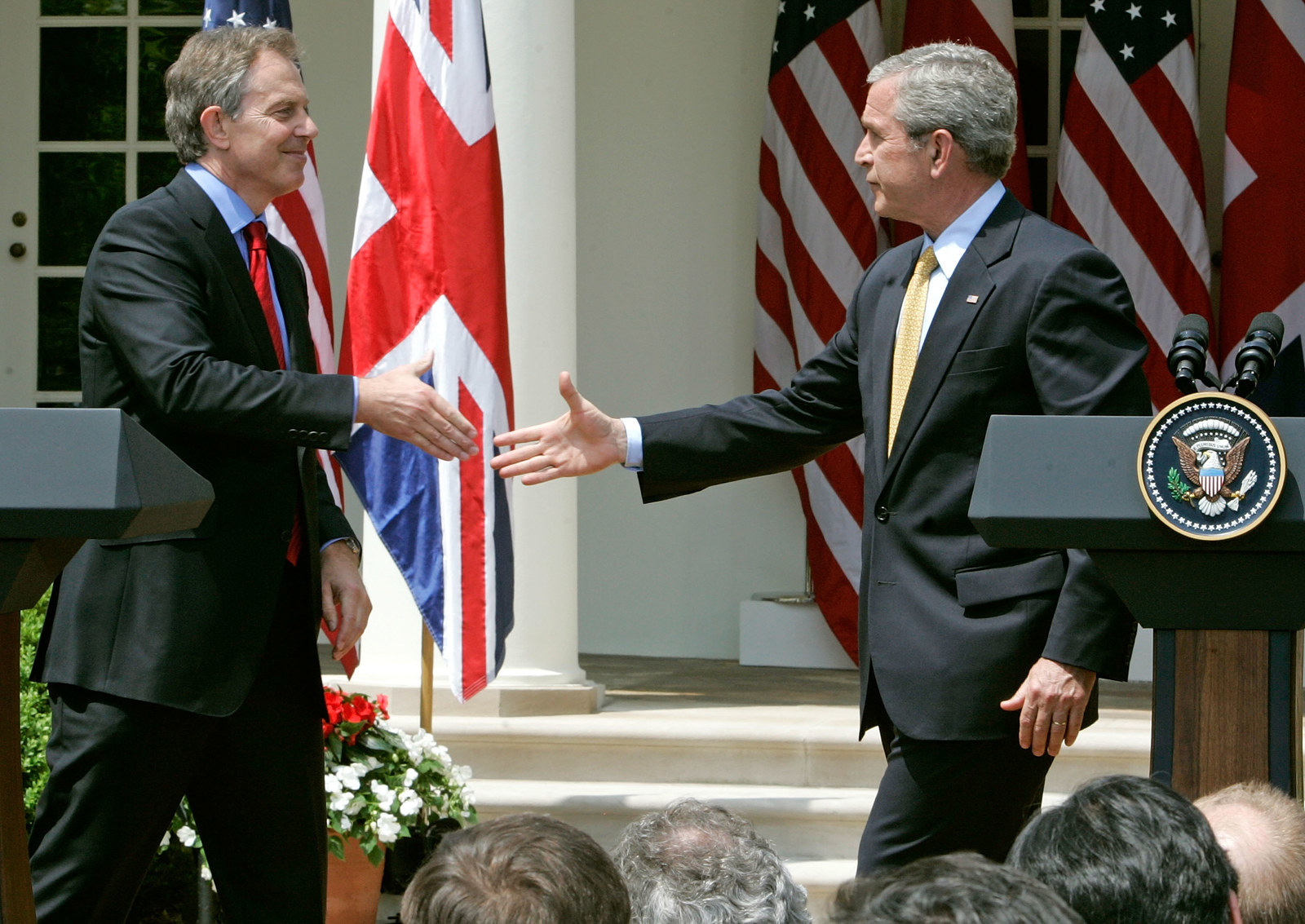The Iraq war inquiry has revealed dozens of private confidential memos written by Tony Blair in the run-up to and during the conflict.
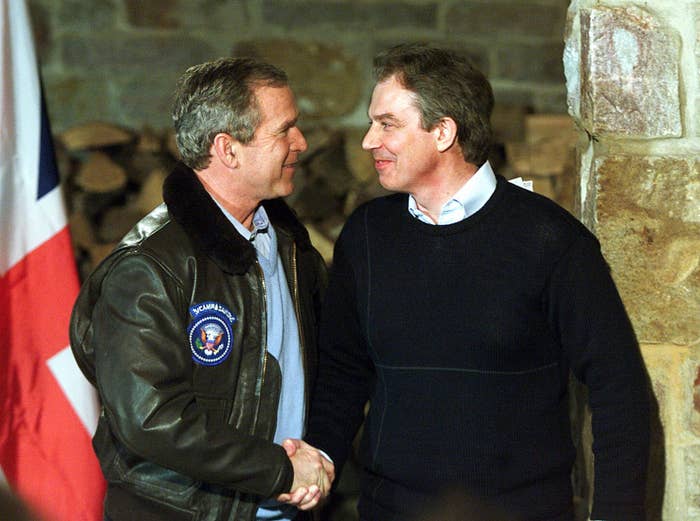
These are some of the more extraordinary memos published:
1. Blair to Bush on 12 September 2001, responding to the previous day's terror attacks: "We are better to act now and explain and justify our actions".
The prime minister wrote to the US president to commit to immediate action after the 9/11 terror attacks.
"[A]fter reflection, there will be many who ask: what is the next stage of this evil? What of their capacity to get hold of biological, chemical and other WMD? We know that there are countries and individuals trading in WMD and/or trying to acquire them. We need a range of sanctions and pressures to stop this.
“Some of this will require action that some will baulk at. But we are better to act now and explain and justify our actions than let the day be put off until some further, perhaps even worse catastrophe occurs. And I believe this is a real possibility.”
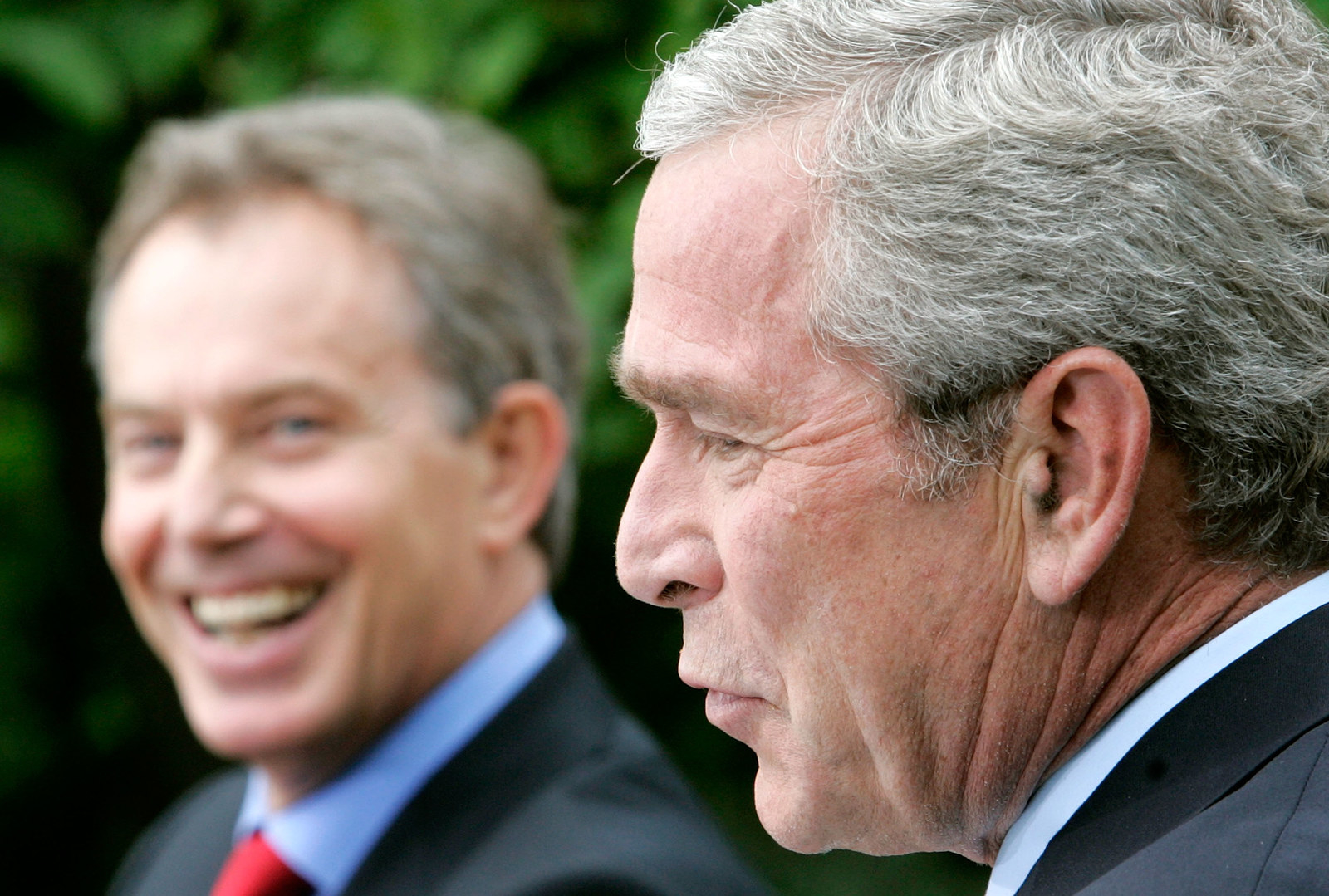
2. In December 2001, more than a year before the invasion, Blair wrote to Bush calling for a "strategy for regime change that builds over time".
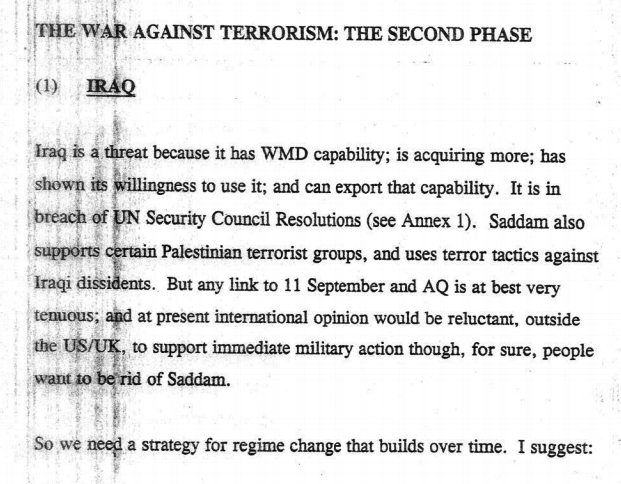
"So: my strategy is to build this over time until we get to the point where military action could be taken if necessary," Blair wrote.
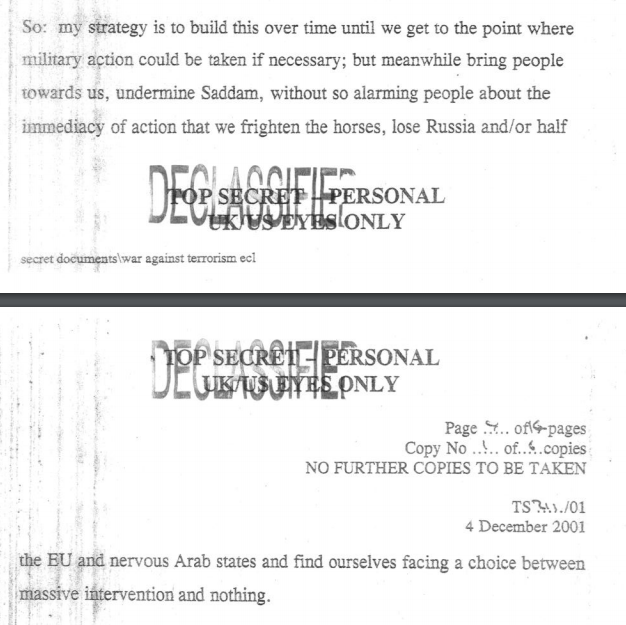
3. Blair to Bush, 28 July 2002: "I will be with you, whatever."
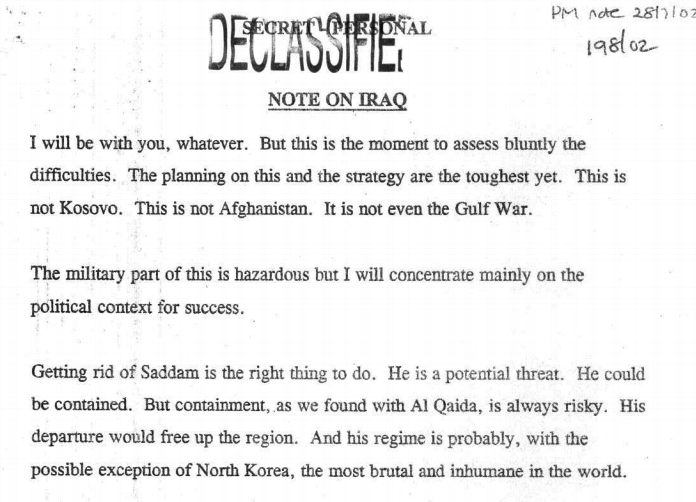
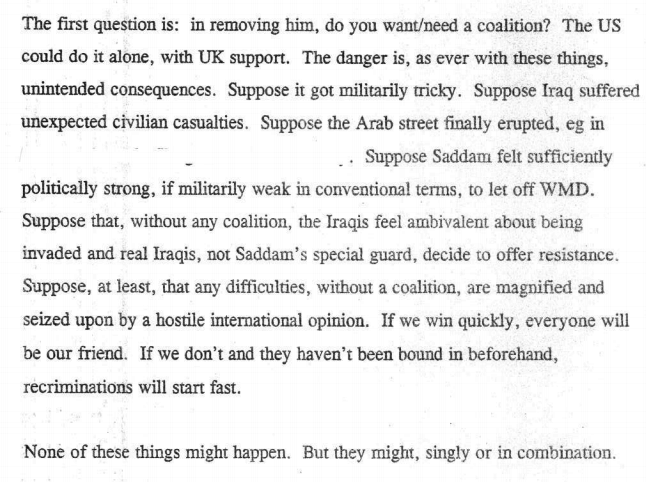
"Our best ally might be Russia," Blair wrote in the same memo.
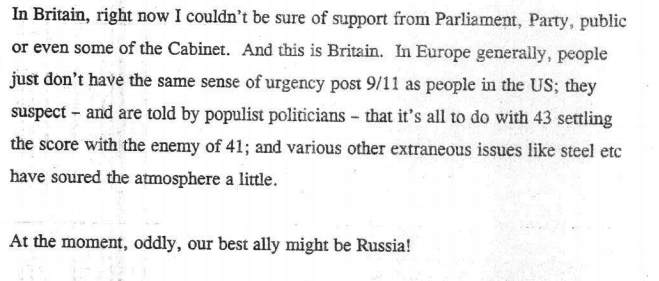
It has also emerged that Blair was advised not to use the phrase "with you whatever".
This is quite astonishing from the then UK ambo to US on Blair's "with you whatever" memo to Bush
Sir David Manning, the British ambassador to the US at the time of the war, recalled discussing the memo with Downing Street chief of staff Jonathan Powell.
"The prime minister should not say this," Manning said to Powell at the time. However, Blair decided to leave the "rhetorical flourish" in the memo, despite Manning believing that it went "further than we should have gone".
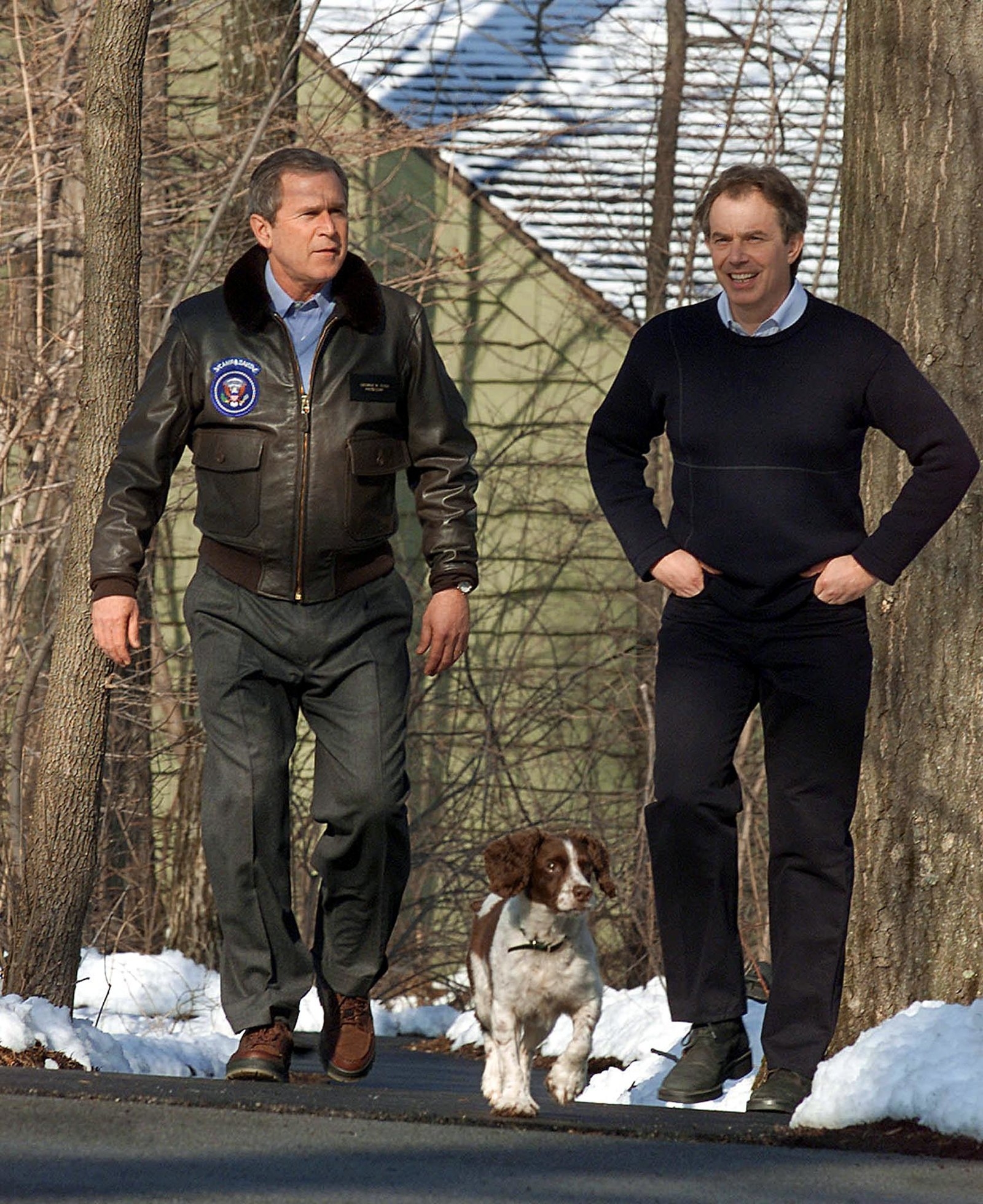
4. "Dear George, It was a brilliant speech. It puts us on exactly the right strategy to get the job done. The reception has been very positive with everyone now challenged to come up to the mark. Well done. Yours ever, Tony."
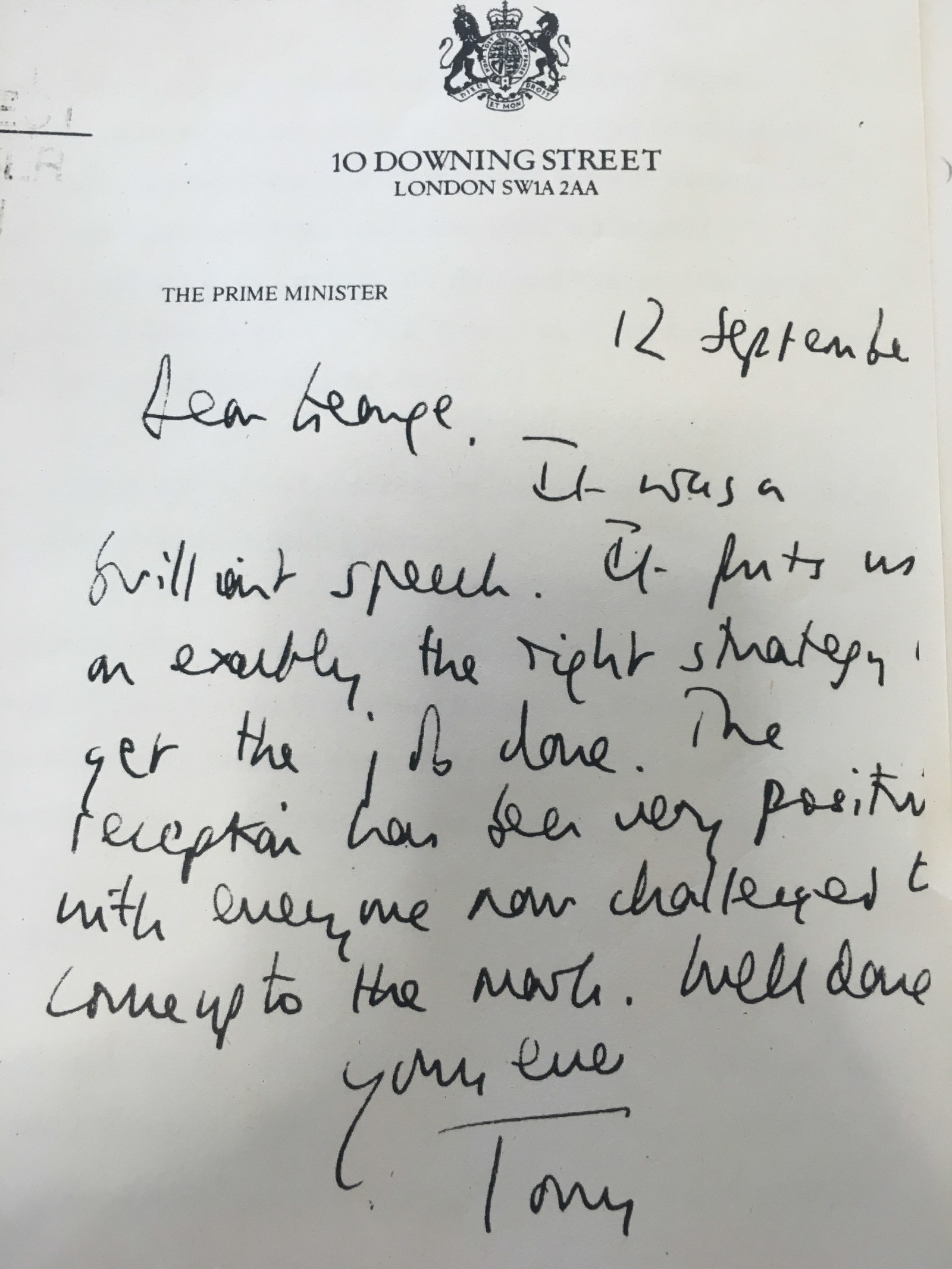
5. In January 2003, two months before the invasion, Blair wrote to Bush arguing they were "victims of our own success".
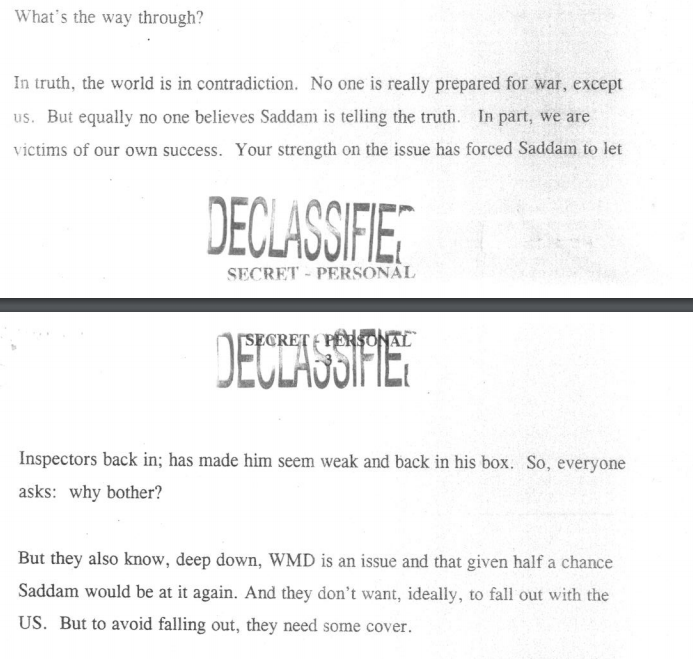
Blair was writing to the US president to outline the risks of waiting for a second UN resolution, and for weapons inspectors to find "the smoking gun" in Iraq.

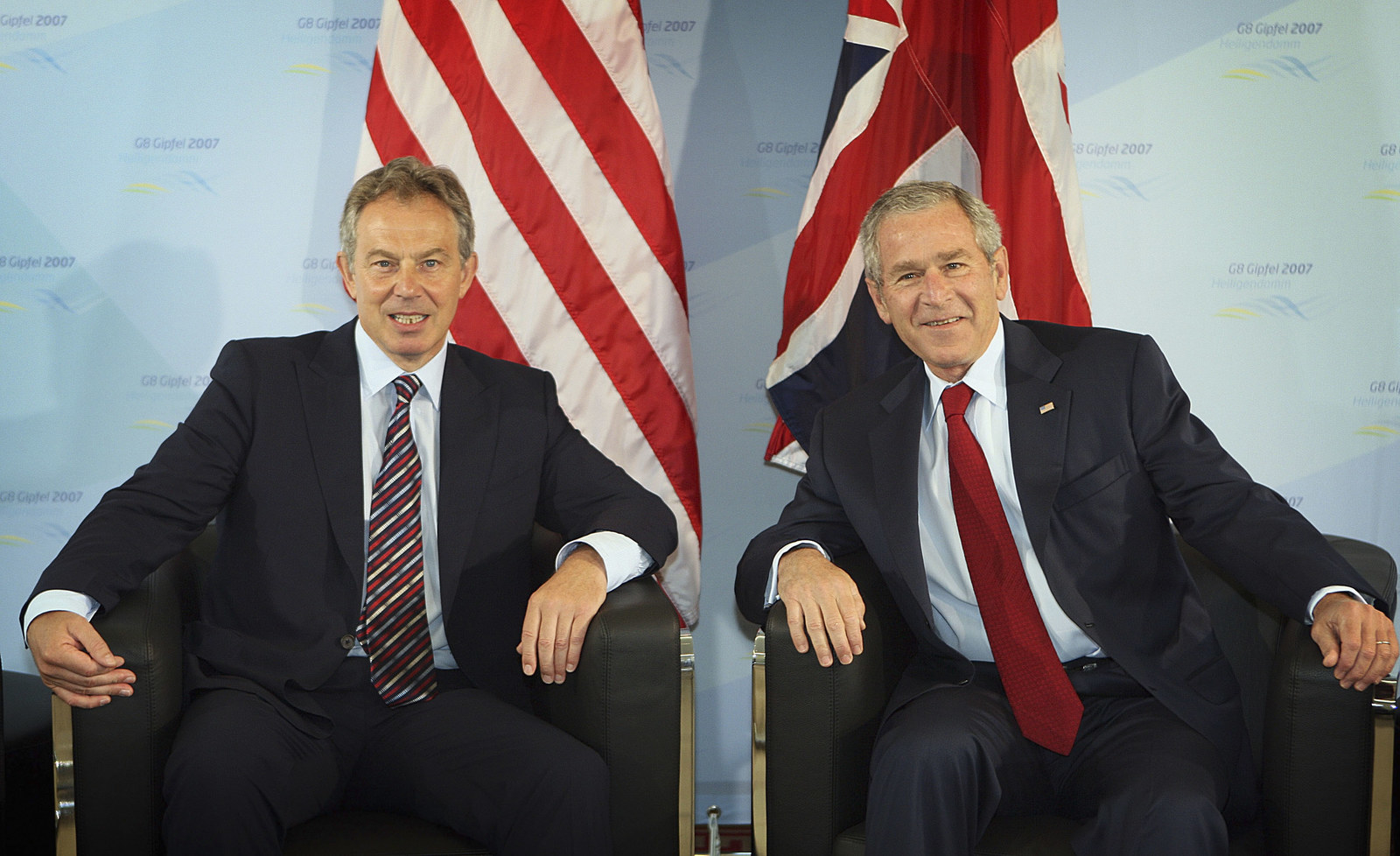
6. A month later, the stakes were "now much higher", Blair wrote, predicting a "defining moment in EU/US relations and in the future direction of Europe.
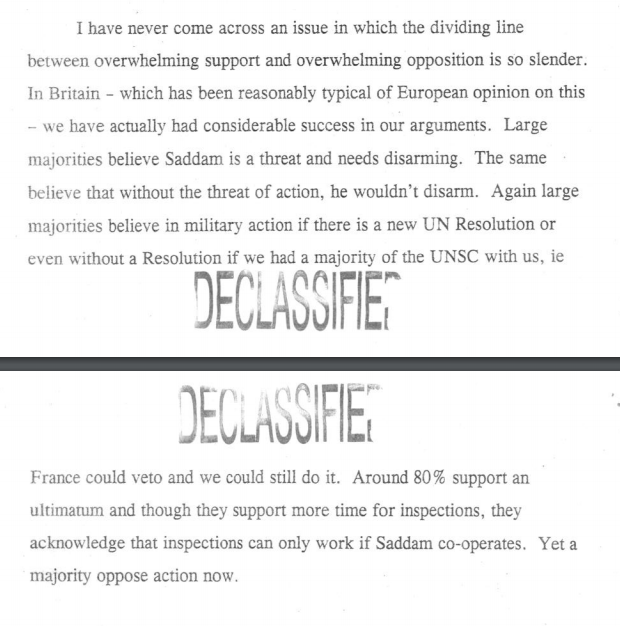
7. Around a week after the invasion began, Blair wrote to Bush in a memo entitled "THE FUNDAMENTAL GOAL".
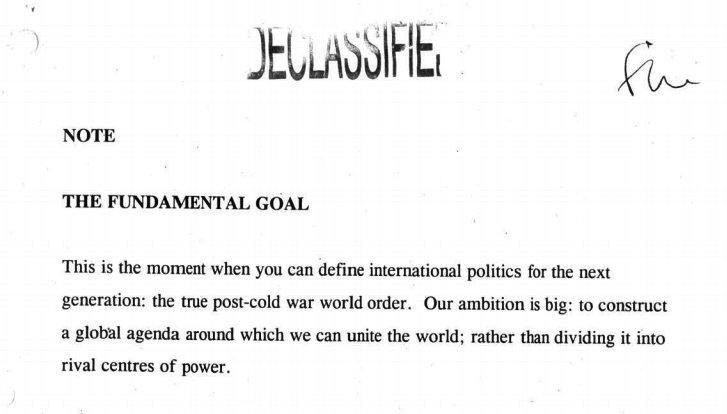
"This is the moment when you can define international politics for the next generation: the true post-cold war order," Blair wrote to the US president. "Our ambition is big: to construct a global agenda around which we can unite the world; rather than dividing it into rival centres of power."
Addressing Bush directly, he went on: "Your insight, which no-one has articulated better or more clearly is that post 9/11 our security is best guaranteed not just through traditional military intelligence means but by our values. More freedom in the world means more security. Countries that are free and democratic are countries unlikely to threaten us. The terrorists and rogue states, however different in origin, come together in hatred of our values because those values represent the opposite of dictatorial states and extremist Islamic terrorists who want to Talibanise the world. They don't hate the US by accident. They hate it for what it stands for."
Blair added: "So our fundamental goal is to spread our values of freedom, democracy, tolerance and the rule of law, but we need a broad based agenda capable of unifying the world, to get it. That's why, though Iraq's WMD is the immediate justification for action, ridding Iraq of Saddam is the real prize."
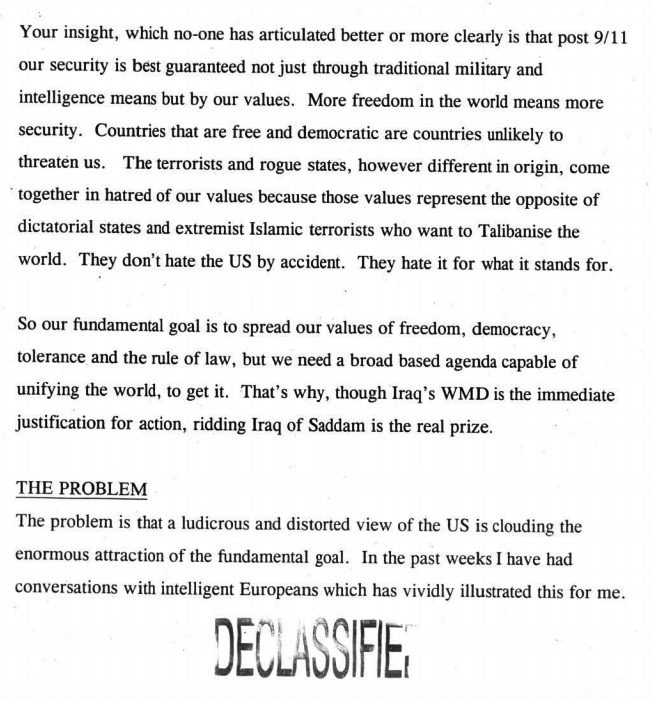
8. A week later, and Blair's thoughts had turned to creating a "media and communications War Room".
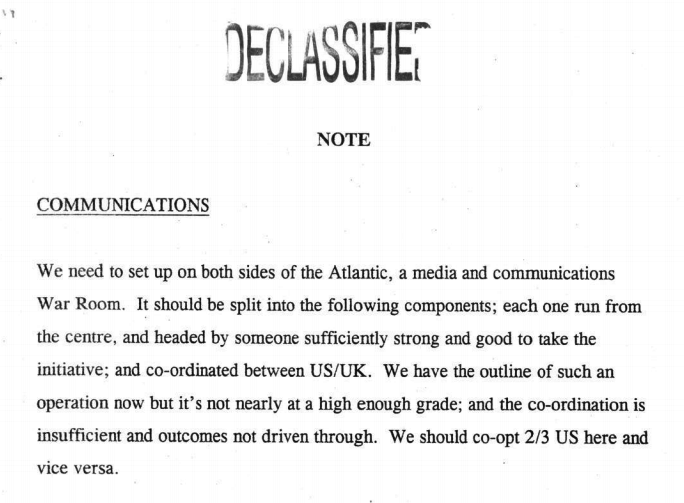
Blair set out an eight-point plan to "get a daily briefing out and give a real sense of strategic grip".
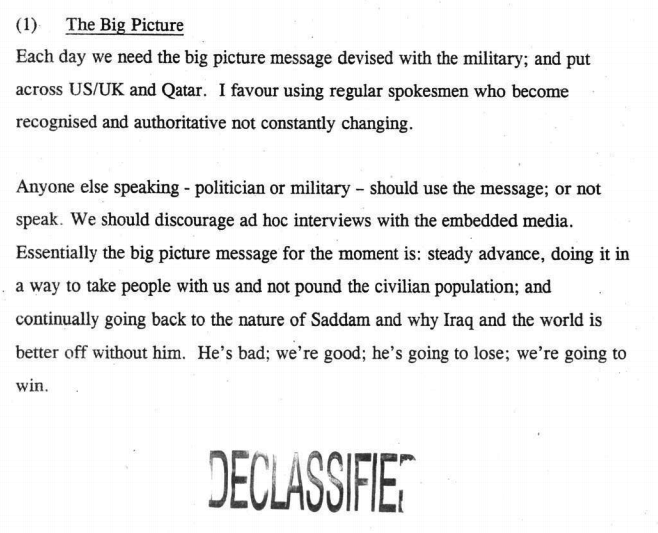
9. By June 2003, the US and UK were effectively occupying powers in Iraq. Blair's thoughts turned to reconstruction, and the daunting scale of the task the coalition faced in Iraq.
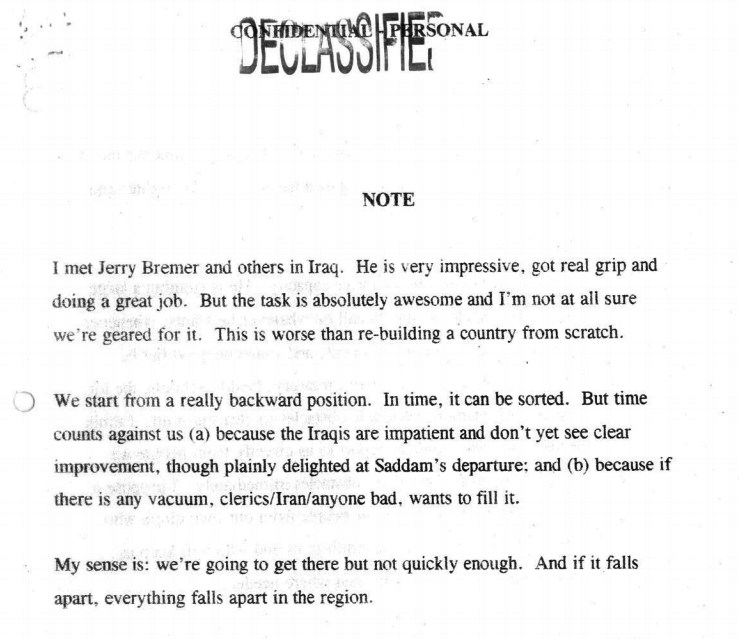
10. In September 2003, Blair wrote again to say rebuilding Iraq was proving the "most difficult phase".
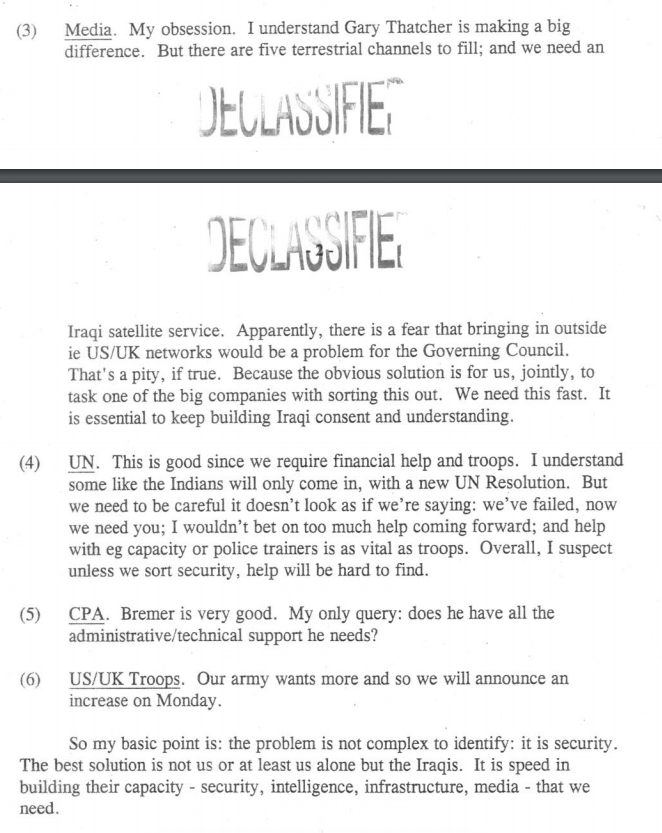
11. A month later, Blair wrote to Bush calling for a "coherent strategy to get us back on the high ground and get the public, at home and abroad, to focus on the big picture".
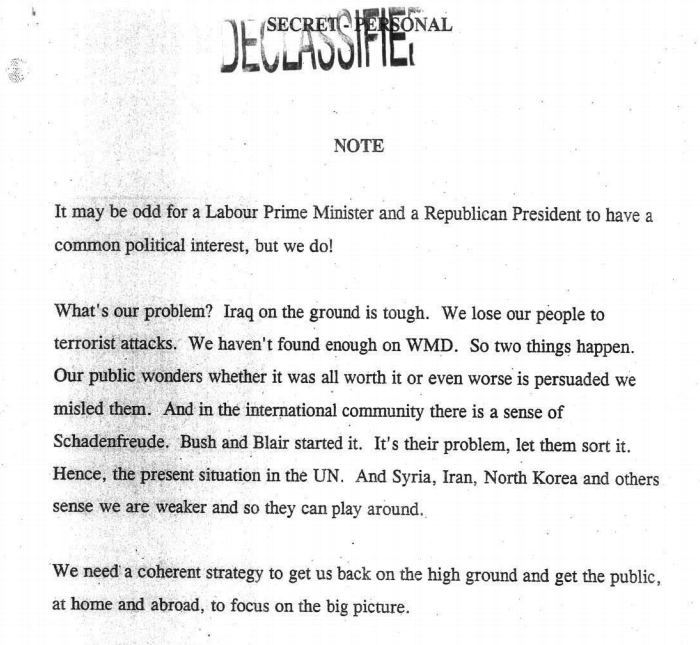
12. In April the following year, Blair's thoughts still seem dominated by reconstructing post-war Iraq, and the public perception of it.
"Public opinion in Europe is incredibly shaky," Blair wrote.
"People as of us: do they have a plan for Iraq that will work? Do they know what they are doing?"
